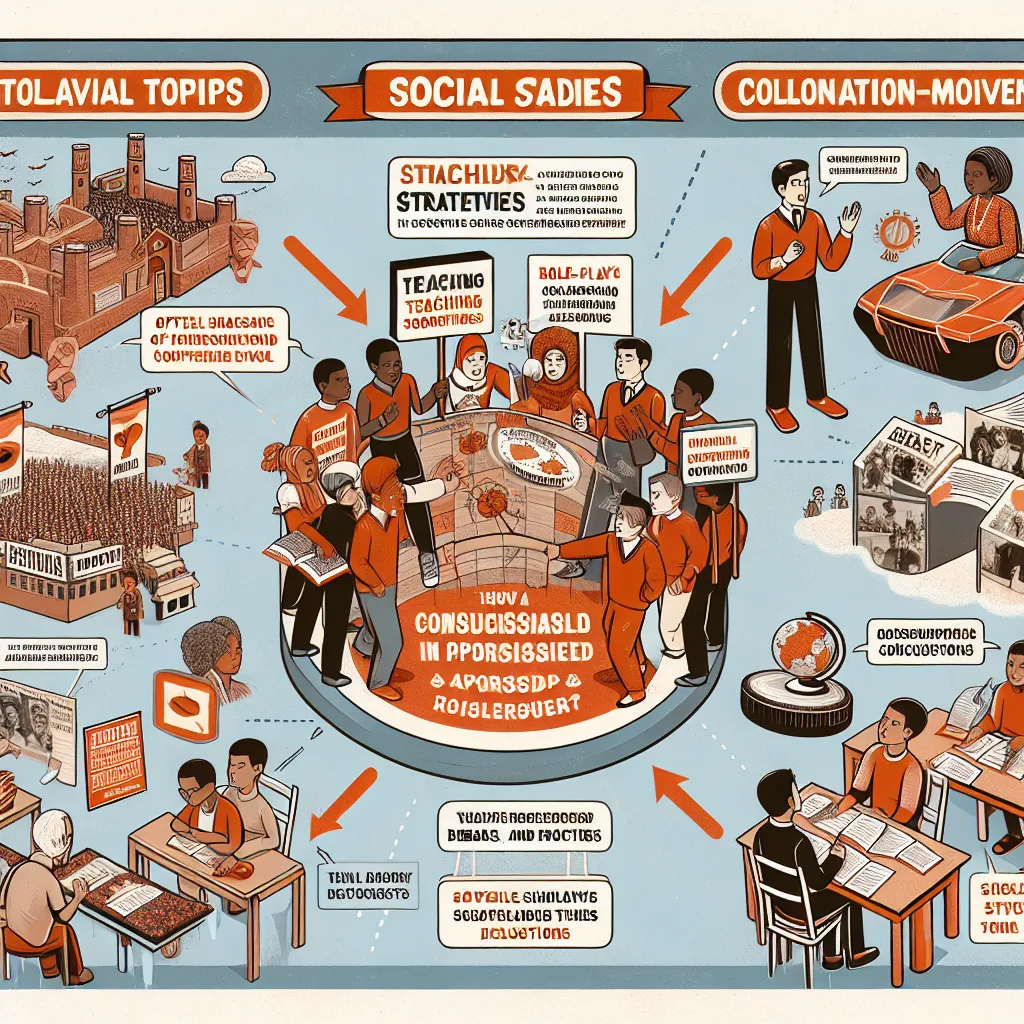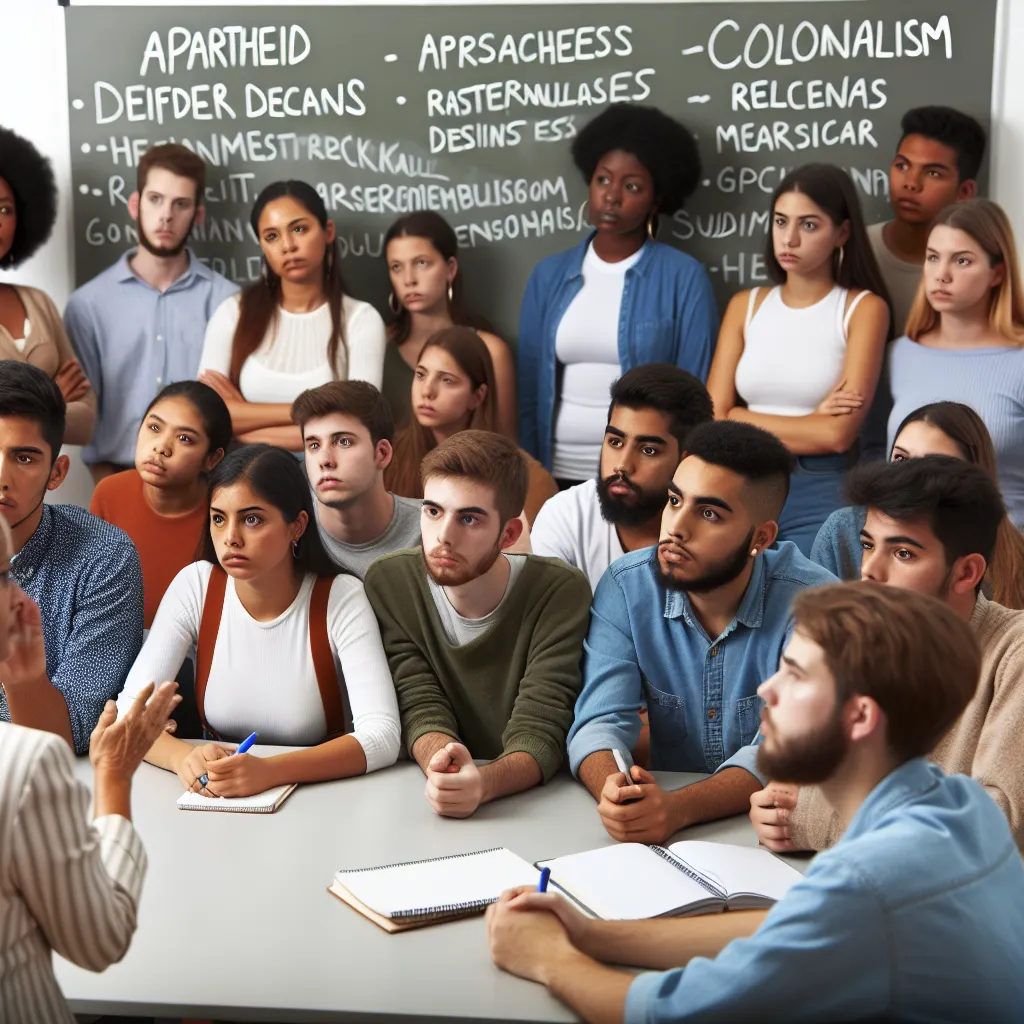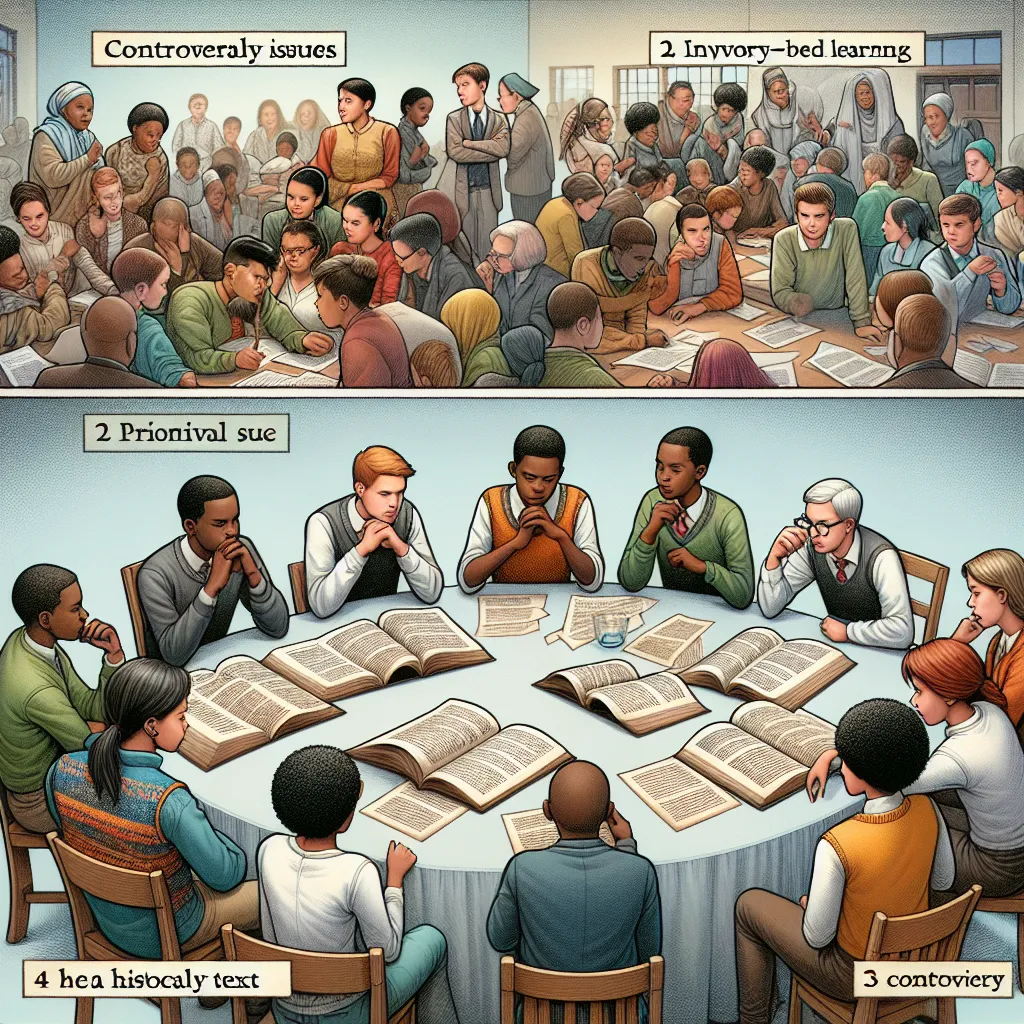Ask AI on The Internet
Question: critically discuss Teaching Controversial Issues in SS History, Approaches (Include examples of controversial topics from CAPS) With citations and references
Teaching controversial issues in Social Studies (SS) history is essential for developing critical thinking, ethical reasoning, and democratic values among students. The Curriculum and Assessment Policy Statement (CAPS) in South Africa provides a framework for educators to address such topics effectively. Here, I will critically discuss approaches to teaching these issues, incorporating examples from CAPS and supporting the discussion with relevant citations. ### Approaches to Teaching Controversial Issues 1. **Inquiry-Based Learning** Inquiry-based learning encourages students to ask questions, investigate multiple perspectives, and draw their own conclusions. This approach fosters critical thinking and engagement. **Example from CAPS**: One controversial topic in the SS history CAPS is the legacy of colonialism and apartheid in South Africa. Teachers can use inquiry-based learning to explore questions such as: "What were the justifications for apartheid, and how do they compare to the lived experiences of those who suffered under it?" 2. **Role-Playing and Simulations** Role-playing allows students to step into the shoes of historical figures or stakeholders, helping them understand different viewpoints and the complexity of historical events. **Example from CAPS**: The Scramble for Africa can be explored through role-playing activities where students assume the roles of various European powers, African leaders, and indigenous populations. This helps learners grasp the strategic and ethical dilemmas of that period. 3. **Debates and Structured Academic Controversies** Structured debates provide a platform for students to articulate arguments, consider counterarguments, and collaboratively seek common ground. **Example from CAPS**: Debating the economic and social effects of the migration labor system during the industrialization of South Africa encourages students to evaluate the benefits and drawbacks from multiple perspectives. 4. **Case Studies** Case studies allow for an in-depth examination of specific incidents, fostering a deeper understanding of broader historical trends. **Example from CAPS**: Case studies on the Truth and Reconciliation Commission (TRC) post-apartheid can help students analyze themes of justice, reconciliation, and historical memory. ## Critical Discussion ### Advantages - **Promotes Critical Thinking**: Engaging with controversial issues compels students to analyze, evaluate, and synthesize information from various sources, fostering higher-order thinking skills (Barton & Levstik, 2004). - **Fosters Empathy and Ethical Reasoning**: By exploring multiple perspectives, students develop empathy and an understanding of the moral complexities of historical events (Hess, 2009). - **Encourages Active Citizenship**: Discussing controversial topics prepares students to become informed and active participants in democratic processes (McCully, 2006). ### Challenges - **Teacher Preparedness**: Many educators may feel inadequately prepared to handle controversial issues, which requires a nuanced understanding and sensitive approach (Stradling, 1984). - **Classroom Dynamics**: Discussion of controversial topics can provoke strong emotions and conflicts among students, necessitating skilled moderation to ensure a respectful and productive dialogue (Cowhey, 2005). - **Institutional Constraints**: Schools may have policies limiting the discussion of certain controversial issues, which can hinder comprehensive education (Oulton et al., 2004). ### Recommendations - **Professional Development**: Providing teachers with professional development on handling controversial issues can enhance their confidence and competence (Bickmore, 1993). - **Creating a Safe Space**: Establishing ground rules for respectful dialogue and emphasizing a classroom culture of mutual respect can help manage conflicts and ensure productive discussions (Avery, 2002). - **Inclusive Curriculum**: CAPS should continue to include diverse perspectives and voices to provide a holistic view of history, helping students understand the interconnectedness of global events and local experiences (Niemi & Niemi, 2007). ## Conclusion Teaching controversial issues in SS history is critical for nurturing informed, empathetic, and critically-thinking students. By employing varied instructional approaches such as inquiry-based learning, role-playing, debates, and case studies, educators can confront challenging topics like apartheid, colonialism, and labor migration. However, the endeavor requires thorough preparation, professional development, and a commitment to fostering an inclusive and respectful classroom environment. ### References Avery, P. G. (2002). Social studies teacher education in an era of globalization. *International Journal of Social Education*, 17(1), 1-19. Barton, K. C., & Levstik, L. S. (2004). *Teaching History for the Common Good*. Lawrence Erlbaum Associates. Bickmore, K. (1993). Learning inclusion/inclusion in learning: Citizenship education for a pluralistic society. *Theory and Research in Social Education*, 21(4), 341-384. Cowhey, M. (2005). *Black Ants and Buddhists: Thinking Critically and Teaching Differently in the Primary Grades*. Stenhouse Publishers. Hess, D. E. (2009). *Controversy in the Classroom: The Democratic Power of Discussion*. Routledge. McCully, A. (2006). Practitioner perceptions of their role in facilitating the handling of controversial issues in contested societies: A Northern Irish experience. *Educational Review*, 58(1), 51-65. Niemi, R. G., & Niemi, R. S. (2007). Civic education: What makes students learn. *Yale University Press*. Oulton, C., Dillon, J., & Grace, M. M. (2004). Reconceptualizing the teaching of controversial issues. *International Journal of Science Education*, 26(4), 411-423. Stradling, R. (1984). The teaching of controversial issues: An evaluation. *Educational Review*, 36(2), 121-129.
Think your answer is better than the AI's? Post it below.
Other Most Relevant Posts:
Question Tags
If you want your question answered by an AI, click here.







Post your own comment: